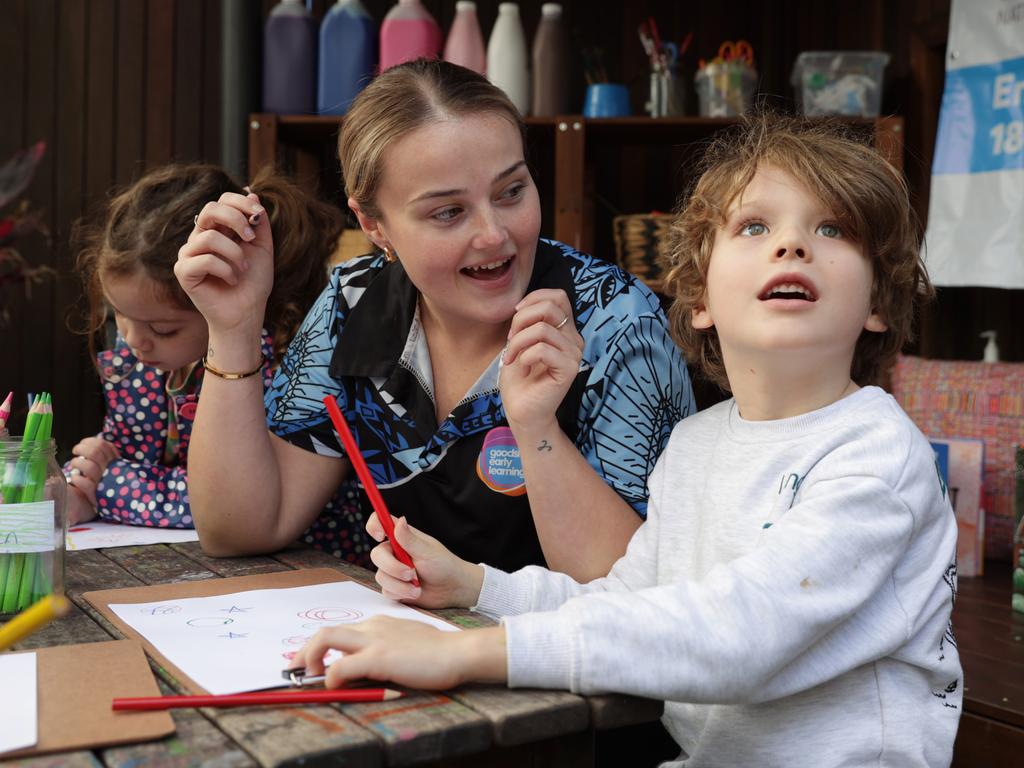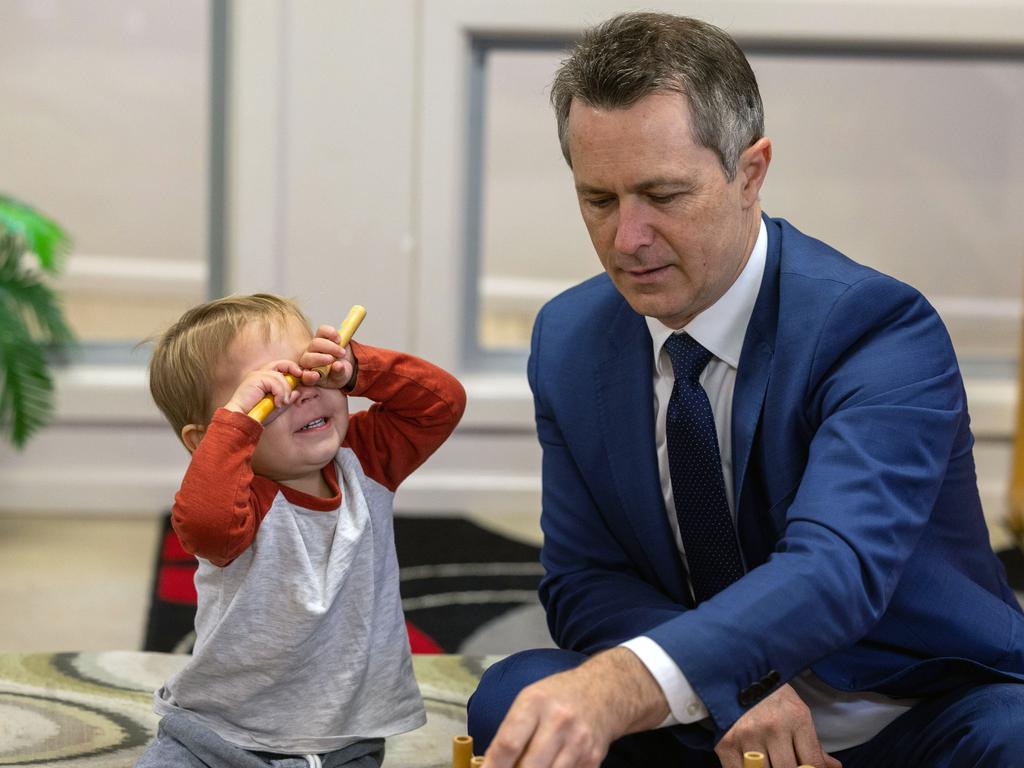Loophole in grant guidelines let childcare centres breach fee cap
A loophole in grant guidelines for the Albanese government’s $3.6bn childcare wage subsidy will allow some centres to raise fees above the mandatory 4.4 per cent cap.

A loophole in grant guidelines for the Albanese government’s $3.6bn childcare wage subsidy will allow some centres to raise fees above the mandatory 4.4 per cent cap.
Centres that can prove they will be financially unviable if they cap fees will still be able to pocket taxpayer subsidies to cover a 15 per cent pay rise for workers.
When Anthony Albanese announced the pay rise in August, he insisted centres would have to cap fee increases to 4.4 per cent over 12 months, as a condition of funding.
“This wage increase will be tied to a commitment from childcare centres to limit fee increases,’’ the Prime Minister said at the launch.
“We want to make sure workers can be fairly paid without the costs being passed on to families.’’
But the federal Education Department’s grant guidelines contain exemptions for financially struggling centres.
“In limited circumstances where a restriction on service fee growth can be shown to seriously impact the financial viability of the provider/grantee or a service, (they) may request departmental consideration of the impact of the fee growth percentage caps,’’ the guidelines state. “In such circumstances, the department may determine that less restrictive fee growth caps are to apply.’’
As a condition of funding, centres are supposed to limit fee increases to 4.4 per cent during the 12 months from August, and 4.2 per cent the subsequent year.
“Where a service is found to have contravened the fee constraint condition, the grantee will not be entitled to receive further grant funding … unless the service reduces their service fees to a level below the allowable fee growth percentage cap,’’ the guidelines state. “The department may also be entitled to exercise its contractual rights of repayment and other remedies.’’
The latest Australian Bureau of Statistics inflation data reveals that families’ out-of-pocket childcare costs soared 12.1 per cent in the year to September, despite more generous government subsidies.
The Australian revealed in August that many centres had already locked in 12-month fee increases well above the cap – including a 5.8 per cent rise announced by the nation’s biggest operator, Goodstart Early Learning, in June.
Independent Education Union NSW/ACT secretary Carol Matthews revealed that staff already paid above the award wage will not receive a full 15 per cent pay rise on top of their existing earnings.
“For example, if the Modern Award rate for a particular job goes from $1000 per week to $1100, the dollar increase is $100,” she said. “A centre paying above the Modern Award must pay $100 increase to their employees doing the same job, not a percentage increase of 10 per cent.’’
The multi-employer agreement signed by 63 employers on Thursday gives a $2.40-an-hour pay rise to the lowest-paid junior workers, raising their wage to $26.37 an hour.
For senior early childhood teachers with a university degree, pay will rise next month by $4.89, to $53.77 an hour. On average, childcare workers stand to pocket an extra $10,000 by the end of next year, assuming they also receive an annual award increase next July.
G8 Education – the biggest for-profit chain of 430 centres, where fees usually rise twice a year – raised its fees 4.5 per cent in January but refused to disclose the extent of any July fee increase. G8 was the first major company to sign a multi-employer bargaining agreement that will deliver a 10 per cent pay rise for workers at Christmas, with another 5 per cent at the end of next year.






To join the conversation, please log in. Don't have an account? Register
Join the conversation, you are commenting as Logout